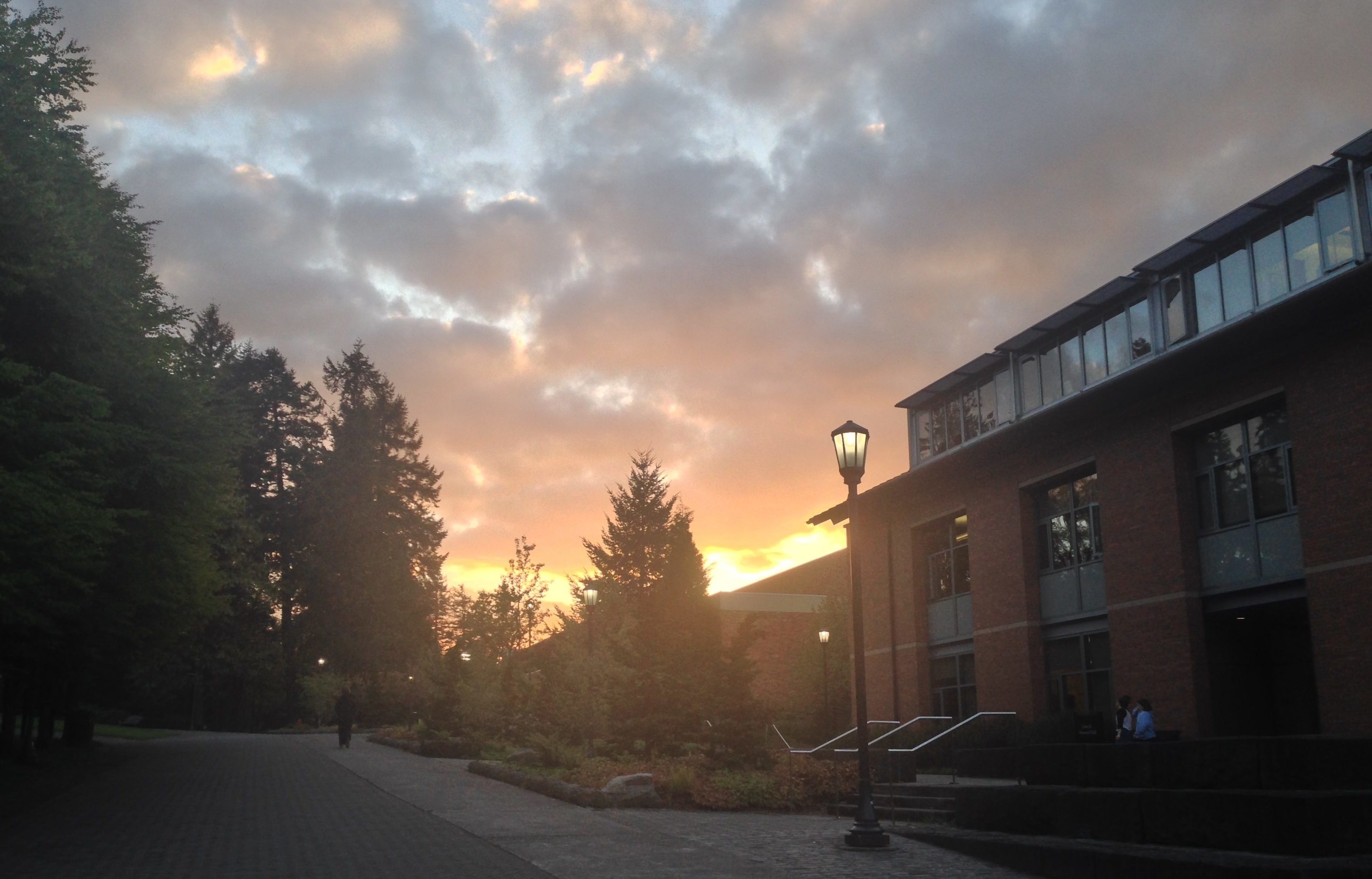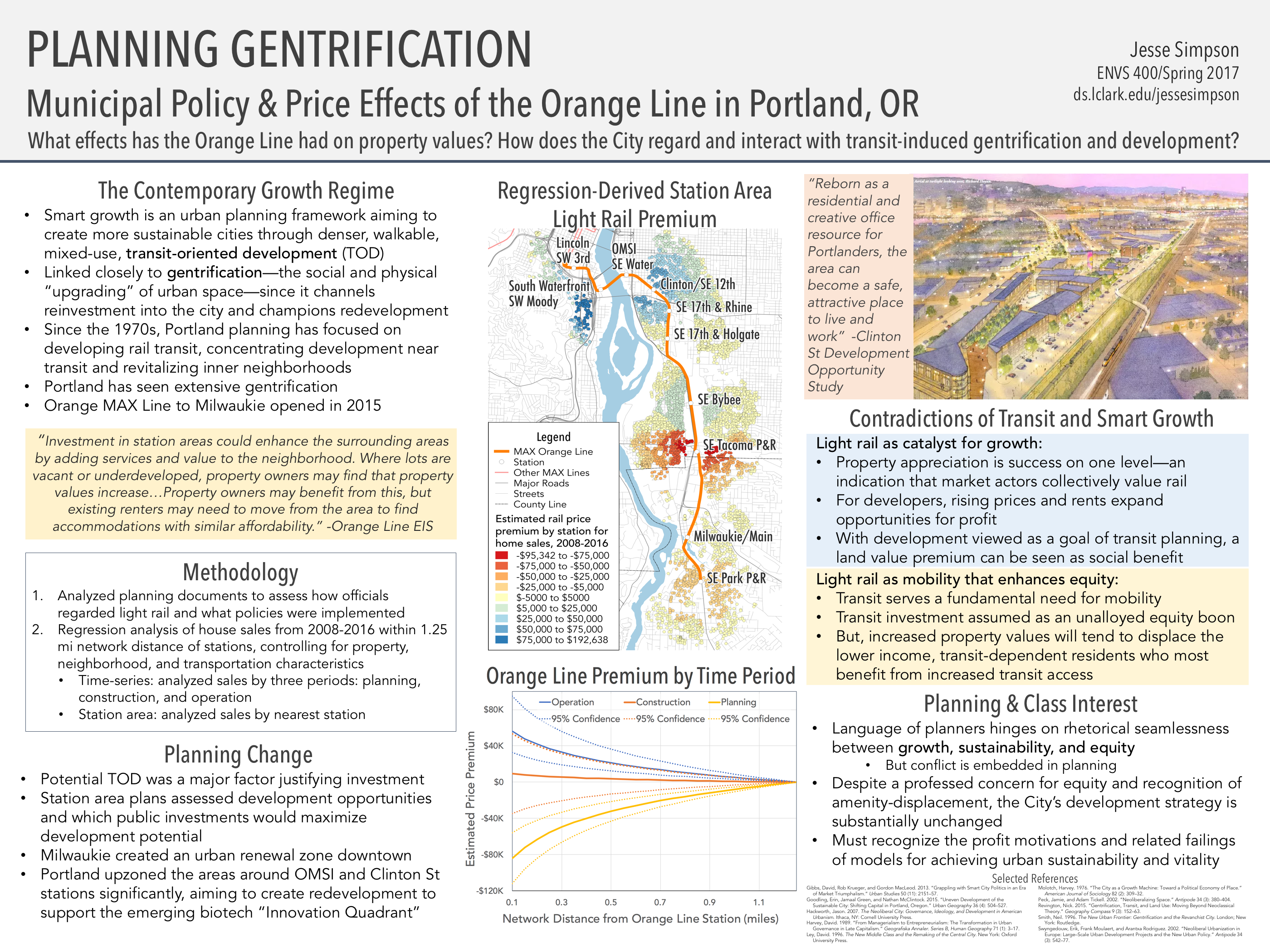
The sunset of my last thesis class—and of college in general
For someone whose main academic focus has been (urban) planning, I don’t tend to do too much of it for my life, beyond the immediate choices facing me and a vague sense of what I want to do. Going into urban planning has long been my default assumption, though I’ve also given more thought recently into pursuing a career in academia. Though I’ve learned a lot about how planning acts in relation to community engagement and what the overall thrust of planning departments are, I know relatively little about what the work of planners in various functions within municipal departments entails or if public sector planning is really what I want to do. Thus, I currently want to get a couple years of experience before I (almost assuredly) go to grad school, so that I have a somewhat more informed perspective on what this field involves as a profession, rather than as a topic for academic study. I definitely don’t want to do permitting for an extended period of time, though some amount is probably necessary if/when I get a job within a municipal planning department.
This year, I intend to find my way into an entry level position related to urban planning, hopefully working as an intern for a planning consulting firm or a nonprofit. Most of the entry level municipal planning positions require somewhat more experience/education than I have, and tend to be quite competitive, so I will probably focus most of my efforts on contacting small organizations working on housing/land use/transportation/planning issues. My GIS skills will definitely help out with the search, being a marketable skill that organizations often need—though I am a little wary of being put onto a track of purely GIS work. While I don’t have (and don’t particularly want to get) a GIS certification and lack the technical spatial database management skills, I think I am well prepared for performing the more interesting open-ended data analysis and GIS work for smaller firms using spatial analysis. My troubleshooting abilities and open-ended research skills definitely position me well for this type of generalized GIS position—I can almost always take a set of goals/desired outcomes and figure out a way to reach those goals. I’ve mostly neglected the job hunt so far this semester, being pretty wrapped up in thesis and other work. In two weeks time, though, I’ll be grinding through my lists of the potential contacts and organizations, working as a bike courier to make a little money. Over the next two years, I will find a position (or series of temporary positions) within the broad urban planning sector, most likely doing some combination of data gathering/analysis, on-demand GIS work, writing, and assistance with other projects as needed. I also aim to get my thesis published in an undergraduate academic journal and will take the GRE at some point in about a year.
My intention is to apply for a graduate school program in Urban Planning (or potentially Geography) at the end of next year, so I would begin grad school in fall 2019. There’s some decisions I need to make about where to apply/attend, which have some bearing on where I want to work and what I want to do (i.e. academic track vs consulting or governmental work). I’d prefer to stay on the West Coast, and have briefly looked at UC Berkeley, UCLA, USC, and UBC, in addition to the University of Washington (probably the most affordable option and very practical in terms of career connections/prospects in Seattle). I have also considered some schools further abroad, like UPenn, University of Illinois, and MIT. I think I’m overall quite well qualified for attending a selective program, though tuition costs will definitely be a consideration. While in graduate school, I will continue gaining work experience through concurrent internships (generally a requirement at most master’s urban planning programs).
That brings me to mid-2021, at which point I will ideally be pursuing a full-time professional planning career (involving a municipal position and working towards AICP accreditation) or moving towards a PhD program. Over the course of these five years, I want to maintain an acceptable work-life balance, foster fulfilling relationships, and meaningfully apply the critical perspectives I’ve gained in ENVS to my actions in the world outside this campus bubble.
















